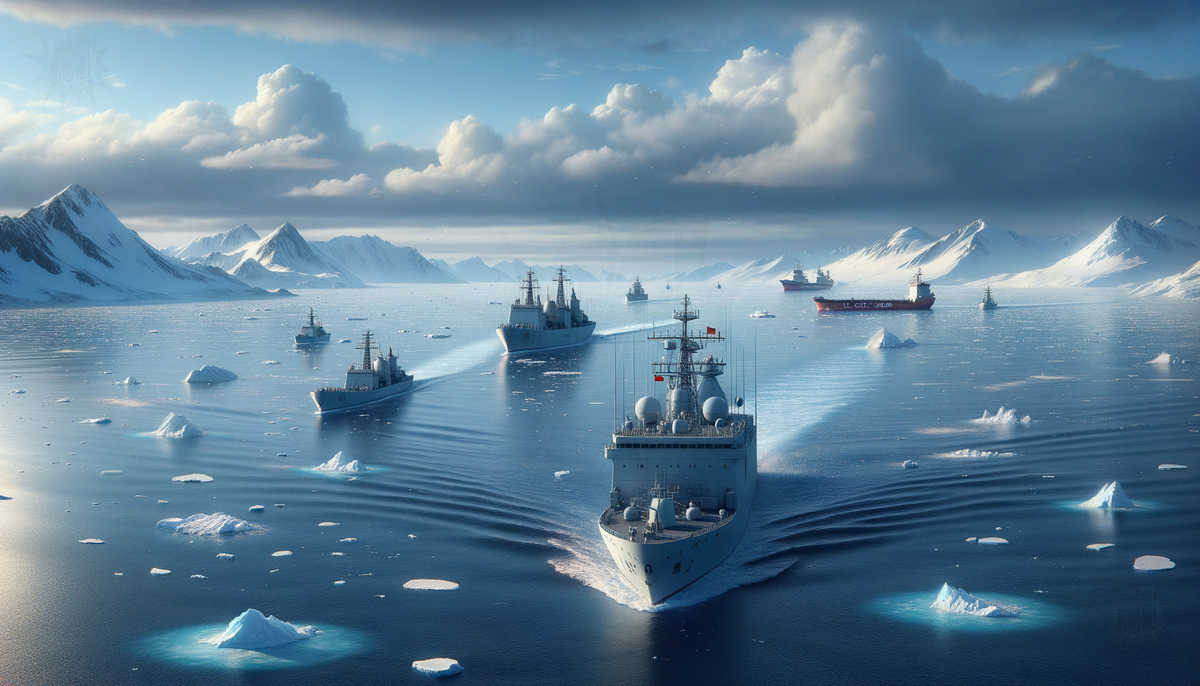China's Expanding Arctic Influence Alarms the West

Four Chinese warships were recently observed off the coast of Alaska in the Bering Sea near the Aleutian Islands, prompting a tense standoff with the U.S. Coast Guard. While the vessels were within America's exclusive economic zone, they remained in international waters. This incident underscores China's growing naval coordination with Russia, a partnership that is increasingly significant in the Arctic region. NATO Secretary-General Jens Stoltenberg noted that this development is altering the security landscape, amid concerns that Moscow and Beijing aim to exploit Arctic resources and new transport routes opened by global warming.
China's Arctic ambitions extend beyond naval presence, with a notable increase in scientific research activities. This year, around 50 Chinese researchers are expected at the Norwegian science station of Ny-Ålesund in the Svalbard Archipelago, the highest number since the COVID-19 pandemic began. Some of these researchers are affiliated with the China Research Institute of Radio Wave Propagation, a unit of the state-owned China Electronics Technology Group Corporation, raising questions about potential dual-use research with military applications. The Arctic's economic importance is underscored by its new shipping routes and ocean mineral resources, and China claims its intentions in the region are peaceful.
China's strategic positioning in the Arctic aligns with its broader geopolitical ambitions, encompassing economic, strategic, and scientific dimensions. This includes investment in Arctic shipping infrastructure, research stations, and icebreakers. The concept of the Arctic Silk Road is part of China's Belt and Road Initiative, aiming to integrate Arctic routes into global trade networks. However, this increasing presence has raised environmental concerns, given the Arctic's vulnerability to climate change.
Russia and China are also focusing on the Northeast Passage, a potential new maritime route between East Asia and Europe, which could significantly impact global trade. Russia has heavily invested in the Arctic, establishing military bases and developing oil fields, while China views the Arctic route as crucial for enhancing global trade connectivity. The evolving geopolitical dynamics in the Arctic reflect broader strategic battles for dominance among global powers, with the U.S. seeking to maintain its historical influence in the face of growing Sino-Russian cooperation.




